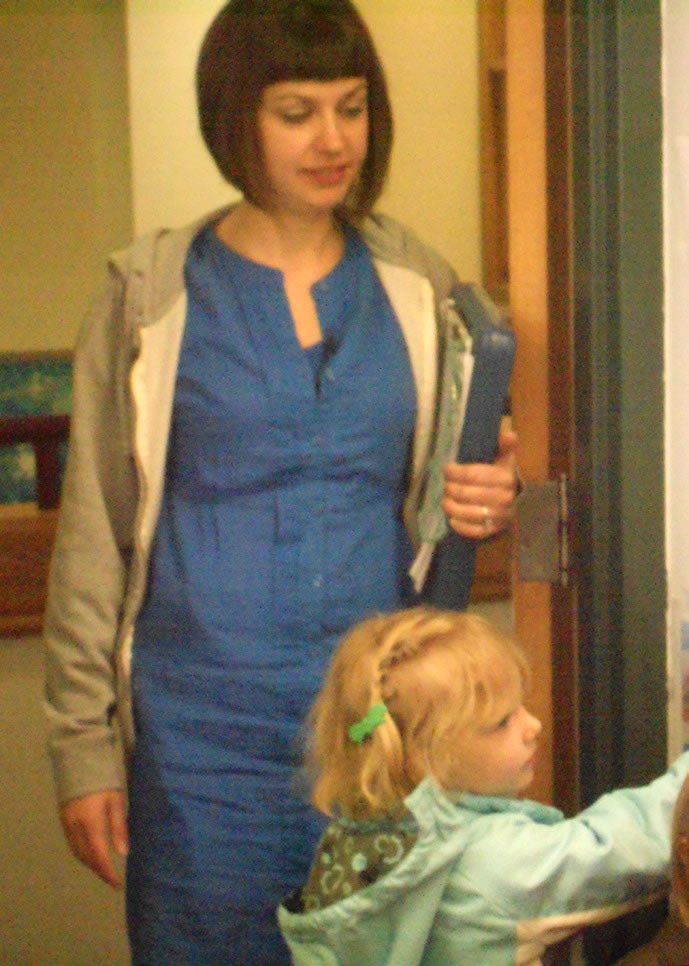Most of us have ideas of how we can be ethical. But have we really thought about what ethics means and how it affects our work? Where do we find informed solutions to the incredibly challenging dilemmas that we all may face at one time or another? How do we reflect ethical conduct?

Defining ethics:
A beginning to understanding
The common dictionary defines ethics as follows: A Code of Ethical Conduct can be thought of as a promise that we will behave in an ethical manner
- A set of moral principles
- A guiding philosophy
- The discipline dealing with what is good and bad and with moral duty and obligation
- "Ethics is the study of right and wrong, or duty and obligation that involves critical reflection on morality and the ability to make choices between values and the examination of the moral dimension of relationships" (NAEYC Code of Ethical Conduct glossary)
Defining ethics is just the beginning to understanding ethics. As early educators, we need to practice and explore the concept of ethics. Doing so will lead us to the foremost values of working directly with children, families, co-workers, and programs.
The National Association for the Education of Young Children (NAEYC) recognizes the need to support early educators in moral and ethical implications. NAEYC provides a tool: the Code of Ethical Conduct, which helps us keep the promises we have made to the profession of early childhood education and care.
Code of Ethical Conduct
A Code of Ethical Conduct can be thought of as a promise that we will behave in an ethical manner. It also helps reinforce our commitment to ethics. NAEYC states:
Code of Ethical Conduct - Defines the core values of the field and provides guidance for what professionals should do when they encounter conflicting obligations or responsibilities in their work.
We can begin to better understand NAEYC's Code of Ethical Conduct by reviewing its Core Values:
Core Values
Standards of ethical behavior in early childhood care and education are based on commitment to the following core values that are deeply rooted in the history of the field of early childhood care and education.
We have made a commitment to
- Appreciate childhood as a unique and valuable stage of the human life cycle
- Base our work on knowledge of how children develop and learn
- Appreciate and support the bond between the child and family
- Recognize that children are best understood and supported in the context of family, *culture, community, and society
- Respect the dignity, worth, and uniqueness of each individual (child, family member, and colleague)
- Respect diversity in children, families, and colleagues
- Recognize that children and adults achieve their full potential in the context of relationships that are based on trust and respect
- Respect the critical role of a knowledgeable, competent, and diverse early childhood care and education workforce in supporting the development and learning of young children (NAEYC Code of Ethical Conduct - Supplement for Early Childhood Adult Educators)
- Base practice on current and accurate knowledge of the fields of early childhood education, child development, adult development and learning, as well as other relevant disciplines (NAEYC Code of Ethical Conduct - Supplement for Early Childhood Adult Educators)
- Recognize that we have many responsibilities--to children, families, personnel, governing boards, sponsoring agencies, funders, regulatory agencies, the community, and the profession--and that the well-being of the children in our care is our primary responsibility, above our obligations to other constituencies. (NAEYC Code of Ethical Conduct - Supplement for Early Childhood Program Administrators)
- Recognize the importance of and maintain a humane and fulfilling work environment for personnel and volunteers. (NAEYC Code of Ethical Conduct - Supplement for Early Childhood Program Administrators)
- Be committed to the professional development of staff. (NAEYC Code of Ethical Conduct - Supplement for Early Childhood Program Administrators)
*Culture includes ethnicity, racial identity, economic level, family structure, language, and religious and political beliefs, which profoundly influence each child's development and relationship to the world.
Our responsibility: Reflecting ethical conduct
Reflecting a code of ethical conduct is our responsibility as early educators. How do you reflect ethical conduct? Find out more about ethics and consider using NAEYC's Code of Ethical Conduct as a tool to help.
References
National Association of the Education of Young Children. NAEYC Code of Ethical Conduct and Statement of Commitment. Retrieved June 25, 2012
National Association of the Education of Young Children. NAEYC Code of Ethical Conduct - Supplement for Early Childhood Adult Educators. Retrieved June 25, 2012.
National Association of the Education of Young Children. NAEYC Code of Ethical Conduct - Supplement for Early Childhood Program Administrators. Retrieved June 25, 2012.
Tips 10-11

